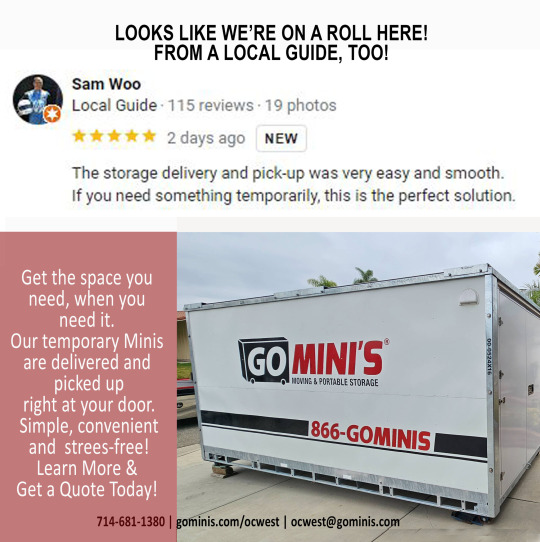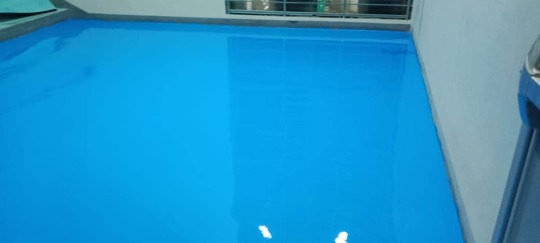#Garage Epoxy Floor
Explore tagged Tumblr posts
Photo

Traditional Garage Inspiration for a large timeless attached two-car carport remodel
#north oaks contractor#michels homes#luxury garage#luxury car garage#garage epoxy floor#epoxy garage flooring#recessed lighting
0 notes
Photo

Compact in Austin small, modern, attached garage a single-car garage
0 notes
Photo

Roof Extensions - Traditional Patio Example of a large classic backyard patio design with a roof extension
#luxury garage interior#luxury car garage#luxury garage#exposed beams#michels homes#garage epoxy floor#traditional style
0 notes
Text
Epoxy Vs Polyaspartic Garage Floor
Both epoxy and polyaspartic coatings are popular choices for garage floors due to their durability and aesthetic appeal. Here’s a comparison between the two:
Application: Epoxy coatings require multiple steps, including surface preparation, primer application, and topcoat. The curing process can take several days, with each coat needing time to dry. Polyaspartic coatings, on the other hand, have a faster application process and quicker curing time. They can be applied in a single day, which is advantageous if you need to use your garage sooner.
Durability: Both epoxy and polyaspartic coatings provide excellent durability. They are resistant to chemicals, stains, abrasions, and impacts. However, polyaspartic coatings are known for their exceptional UV resistance. They do not yellow or degrade when exposed to sunlight, making them a better choice if your garage receives a lot of natural light.
Flexibility: Polyaspartic coatings offer superior flexibility compared to epoxy. This flexibility allows them to expand and contract with temperature changes, reducing the risk of cracking or peeling. Epoxy coatings are more rigid and can be prone to cracking if the concrete substrate experiences movement.
Curing time: As mentioned earlier, polyaspartic coatings have a faster curing time than epoxy coatings. Epoxy coatings can take several days to fully cure, while polyaspartic coatings can be ready for use within 24 hours. This makes polyaspartic coatings more convenient if you need to use your garage quickly.
Appearance: Both epoxy and polyaspartic coatings offer a wide range of colors, finishes, and decorative options. They can transform the look of your garage floor, providing a glossy, professional appearance. It ultimately comes down to personal preference and the specific aesthetic you desire for your garage.
In summary, epoxy coatings are a tried-and-true option for garage floors, offering durability and a range of decorative possibilities. Polyaspartic coatings, on the other hand, provide similar durability but with faster curing times, superior UV resistance, and better flexibility. Consider your specific needs and preferences when choosing between the two. Get an estimate to install an epoxy floor today.
0 notes
Photo

Garage - Compact Inspiration for a small contemporary attached one-car garage remodel
0 notes
Text
Comparative Benefits of Epoxy vs. Other Flooring Materials
Index
1. Introduction
2. Cost Comparison: Epoxy vs. Carpet, Tile, Hardwood, Laminate, and LVP
3. Customization Options
4. Durability and Longevity
5. Benefits for Landlords
6. Maintenance and Upkeep
7. Flexibility for Future Changes
8. Aesthetic Appeal
9. Suitability for All Rooms
10. Conclusion
Introduction
Welcome to Darling Flooring’s blog! As the owner of Darling Flooring, I’m thrilled to share why epoxy flooring stands out as a superior choice compared to other common flooring options such as carpet, tile, hardwood, laminate, and luxury vinyl plank (LVP). Whether you’re a homeowner looking to enhance your space or a landlord seeking a practical solution for rental properties, understanding the benefits of epoxy flooring can help you make an informed decision. Let’s dive into the reasons why epoxy might be the perfect choice for your needs.
Cost Comparison: Epoxy vs. Carpet, Tile, Hardwood, Laminate, and LVP
When evaluating flooring options, cost is a crucial factor. Epoxy flooring is often more cost-effective compared to high-end materials like hardwood and extensive tile installations. Carpet may appear cheaper initially, but it requires frequent replacement and cleaning. Laminate and LVP are more affordable but can still fall short in durability compared to epoxy. Overall, while the upfront cost of epoxy may be slightly higher than budget-friendly options, its long-term durability and minimal maintenance needs offer excellent value.
Customization Options
Epoxy flooring offers unparalleled customization compared to traditional flooring systems. With epoxy, you can choose from a variety of colors, finishes, and textures to match your interior design perfectly. Whether you prefer a sleek, modern look or a more textured surface, epoxy can be tailored to fit your style. In contrast, carpet and laminate offer limited design choices, and tile patterns can be restrictive. Epoxy’s flexibility allows for a personalized touch that can enhance the aesthetic appeal of any space.
Durability and Longevity
Durability is one of the standout benefits of epoxy flooring. Unlike carpet, which wears out and stains easily, or hardwood, which can scratch and dent, epoxy provides a tough, long-lasting surface. It’s highly resistant to moisture, stains, and heavy impacts, making it ideal for high-traffic areas and environments prone to spills or heavy use. This level of durability means that epoxy can outlast most other flooring types, making it a wise investment for both residential and commercial spaces.
Benefits for Landlords
For landlords, epoxy flooring offers several advantages. Its durability and ease of maintenance make it a practical choice for rental properties. Epoxy floors are less likely to be damaged by tenants, and they are simple to clean between rentals. Additionally, the low maintenance requirements reduce the frequency of costly repairs and replacements. The long-lasting nature of epoxy ensures that landlords won’t need to replace flooring as often, making it a cost-effective option in the long run.
Maintenance and Upkeep
Epoxy flooring shines when it comes to maintenance. Unlike carpet, which traps dirt and requires regular cleaning, or tile, which can be difficult to grout and clean thoroughly, epoxy floors are incredibly easy to maintain. Regular sweeping and occasional mopping are typically sufficient to keep epoxy floors looking their best. This ease of upkeep contrasts sharply with the more demanding maintenance needs of hardwood and the grouting issues associated with tile.
Flexibility for Future Changes
One of the unique advantages of epoxy flooring is its ability to be covered with other flooring materials if you decide to change your home’s aesthetic. If you choose to install carpet, tile, or any other type of flooring over epoxy, it provides a solid, stable base. This flexibility allows homeowners to update their flooring style without having to remove the existing epoxy, saving money, time and effort.
Aesthetic Appeal
Epoxy flooring is known for its sleek, modern appeal. It can instantly elevate the look of any room with its shiny, smooth finish and customizable designs. Unlike traditional carpet or laminate, which may show wear and tear over time, epoxy maintains its new appearance for years. The reflective nature of epoxy can also brighten up spaces, adding a touch of contemporary elegance.
Suitability for All Rooms
Epoxy flooring excels in various environments, including high-moisture areas like kitchens, bathrooms, and garages. Its resistance to water and stains makes it ideal for these spaces, where other flooring options might struggle. Whether it’s dealing with spills in the kitchen or the demands of a busy bathroom, epoxy stands up to the challenge, offering both functionality and style.
Conclusion
In summary, epoxy flooring offers numerous benefits over traditional options like carpet, tile, hardwood, laminate, and LVP. From cost-effectiveness and customization to durability and low maintenance, epoxy is a versatile and practical choice for both homeowners and landlords. If you’re considering upgrading your flooring, I invite you to reach out to Darling Flooring. Let us help you explore how epoxy can enhance your space and meet your specific needs. Contact us today to see if epoxy flooring is the right fit for you!

#darling flooring#epoxy flooring#epoxy comparison#flooring options#pros and cons#inland empire#epoxy vs.#flooring installation#concrete coating#home improvement#interior design#landlord#Jacob darling#bathroom#garage floor#metallic epoxy
2 notes
·
View notes
Text

Call today for your uber convenient self storage delivered to your door - 714-681-1380!
#moving#renovation#homeremodel#portablestorage#storagepod#home & lifestyle#fumigation#restoration#staging#home decor#dark wood flooring#wide plank flooring#epoxy flooring#bathroom remodeling#kitchen expansion#kitchen counters granite#kitchen redesign#mancave#garage remodel#garage renovation#moving containers#storage#pods#packrat#portable storage#storageunit#self storage#uc irvine#cal state fullerton#college
4 notes
·
View notes
Text
Epoxy Parking floor Solution
Enhancing Durability and Aesthetics.When it comes to parking spaces, durability and safety are paramount. Epoxy parking floor coating has emerged as a reliable solution to protect parking floors from wear and tear, while simultaneously enhancing their visual appeal. This versatile coating has gained popularity in commercial and residential settings alike, owing to its remarkable strength and customizable design options.
One of the primary benefits of epoxy parking floor coating is its ability to withstand heavy loads and frequent vehicular traffic. With its robust chemical composition, it forms a resilient layer that safeguards the underlying concrete from oil stains, chemicals, and abrasions. This not only prolongs the life of the parking floor but also reduces the need for frequent maintenance, making it a cost-effective choice in the long run. perfect solution

#epoxycoating#epoxy flooring#epoxy#epoxy paint#epoxy floor solution in bangladesh#flooring services#parking garage#parking tiles#car park#epoxy floor solution in chittagong#epoxy floor solution in dhaka
2 notes
·
View notes
Photo

Types Of Garage Floor Coatings
The garage floor is one of the worst areas of your home to clean. Beneath the greasy floor, oil stains are hard to remove. Over time, they can leave permanent stains. But this doesn't have to happen. With proper maintenance, floor coatings can prevent permanent stains from getting into the concrete.
#garage#flooring#floor#coatings#garagefloor#floor coatings#garage flooring#epoxy coatings#tips for choosing a garage floor
2 notes
·
View notes
Text
https://concrete-inc.com/service/epoxy-flooring/

Upgrade your floors with high-quality epoxy coatings from Concrete Resurfacing Systems! Our durable, slip-resistant, and stunning finishes are perfect for homes and businesses. Serving Massachusetts and Florida. Contact us today for a free estimate!
#concrete epoxy#concrete floor coatings#epoxy the floor#epoxy flooring#concrete resurfacing#garage floor coatings#garage floor epoxy coating#garage floor epoxy flooring#massachusetts#florida#usa
0 notes
Text
Transform Your Floors with Expert Epoxy Solutions in Plymouth

Plymouth Epoxy Flooring offers a wide range of flooring services, including epoxy floor coating, industrial and metallic epoxy flooring, and concrete coating services. They specialize in garage, restaurant, and commercial kitchen epoxy flooring, providing high-quality and durable solutions for both residential and commercial spaces in Plymouth. Visit now >>> https://plymouthepoxy.com/our-services/
#flooring services plymouth#epoxy flooring services plymouth#epoxy floor coating plymouth#industrial epoxy flooring plymouth#concrete coating service plymouth#metallic epoxy flooring plymouth#garage epoxy flooring plymouth#metallic epoxy floor coating plymouth#restaurants epoxy flooring plymouth#commercial kitchen epoxy flooring plymouth
1 note
·
View note
Text
For homeowners and businesses wanting enhanced durability, safety, and aesthetics for their garage floors, investing in Garage Floor Epoxy is a wise choice. The coating will provide benefits in the long run and will be well worth it in any interior space. Whether in a home garage or commercial workshop setting, epoxy flooring offers an I'm-not-going-anywhere kind of look that is forever useful and polished.
#santa barbara epoxy floor coatings#santa barbara epoxy garage floors#santa barbara commercial epoxy floors#santa barbara residential epoxy floors#santa barbara
0 notes
Text
How To Epoxy Garage Floor
Epoxy coating is a popular option for garage floors as it provides a durable, stain-resistant, and attractive finish. See this guide on Pilmer Epoxy. Here's a step-by-step guide on how to epoxy a garage floor:
Gather the necessary materials:
Epoxy coating kit (includes epoxy resin and hardener)
Concrete etching solution (if your floor is not already etched)
Cleaning solution or degreaser
Broom or vacuum
Scrub brush or push broom
Paint roller with an extension pole
Paintbrush
Paint tray
Painter's tape
Safety goggles, gloves, and protective clothing
Non-slip additive (optional)
Prepare the garage floor:
Clear the garage of any items and sweep or vacuum the floor to remove loose dirt and debris.
If your floor has oil stains or is not previously etched, use a concrete etching solution following the manufacturer's instructions. This step helps the epoxy adhere better to the surface.
Clean the floor using a cleaning solution or degreaser to remove any oil, grease, or other contaminants. Scrub the surface with a scrub brush or push broom, and then rinse thoroughly. Allow the floor to dry completely.
Repair any cracks or imperfections:
Inspect the floor for any cracks, holes, or other imperfections. Fill them with a suitable concrete patching compound and smooth the surface with a trowel. Allow the patching compound to cure as per the manufacturer's instructions.
Apply painter's tape:
Use painter's tape to protect the walls, baseboards, and any other areas you don't want to get epoxy on. Apply the tape along the edges, ensuring a clean boundary.
Mix the epoxy coating:
Read and follow the instructions on the epoxy coating kit carefully.
Mix the epoxy resin and hardener in a clean container according to the manufacturer's guidelines. Stir the mixture thoroughly but avoid creating air bubbles.
Apply the epoxy coating:
Start by applying a coat of epoxy primer to the floor using a paintbrush or roller. This helps with adhesion.
Once the primer coat is dry, mix a second batch of epoxy for the main coat.
Use a roller with an extension pole to apply the epoxy coating evenly across the floor. Work in small sections, starting from the back of the garage and working your way towards the exit.
Use a paintbrush to cut in along the edges and corners where the roller cannot reach.
If desired, sprinkle a non-slip additive onto the wet epoxy for added traction. Follow the manufacturer's instructions for the appropriate amount and application method.
Allow the epoxy to cure:
Once you've applied the epoxy coating, allow it to cure as per the manufacturer's instructions. This typically takes several days, so make sure to avoid walking or driving on the surface during this time.
Apply a topcoat (optional):
Some epoxy kits include a clear topcoat for added protection and gloss. If your kit includes a topcoat, follow the manufacturer's instructions to apply it after the epoxy has cured.
Remember to follow all safety precautions mentioned in the epoxy coating kit and use adequate ventilation while working with epoxy. It's essential to read and follow the specific instructions provided by the manufacturer of the epoxy coating kit you choose, as different products may have slightly different application techniques.
0 notes
Text
Why Epoxy.com Chip Flooring is the Ultimate Solution for Durable & Aesthetic Spaces
Introduction: What Makes Chip Flooring Stand Out? Why Epoxy.com Chip Flooring is the Ultimate Solution for Durable & Aesthetic Spaces Introduction: What Makes Chip Flooring Stand Out? When it comes to high-performance flooring, few options provide the perfect balance of durability, aesthetics, and easy maintenance like Epoxy.com Chip Flooring. Designed to withstand heavy foot traffic, impact,…
#best epoxy floor coating#chip flooring#commercial flooring#decorative epoxy#epoxy flooring#garage flooring#Industrial Flooring#Seamless Flooring#slip-resistant flooring
0 notes
Text
What Are Some Best Colors and Finishes for Modern Garage Floors

Nowadays, most millennials are looking forward to giving their garages a touch of luxury because today garages are not only meant for vehicles as they are serving multiple purposes and aesthetics matters to everyone. That is why selecting the right color and finishing for your garage floors is a crucial task that requires sincere efforts.
In fact, when looking for best colors and finishes for modern garage floors it is normal for someone to face a lot of dilemmas. Here in this article, we will discuss the best colors and finishes for modern garage floors.
Metallic Epoxy
Among the various glamorous colors and finishes available for modern garage floors the metallic epoxy is one of the most sought-after designs because it makes your garage floor stand out in all conditions. Besides that, there are a lot of options when it comes to metallic epoxy floor finishes because you can either go for the swirl finish or opt for gunmetal Grey finish.
In addition to that, the metallic pigments bring in a three-dimensional effect that creates depth and increases the visual appeal of your garage floor. If you are someone who is looking forward to creating a luxurious garage floor then you must definitely opt for the gunmetal Grey garage floor finish.
Besides that, the darker tone of the gunmetal helps in concealing dirt & tire marks that are typically associated with garage floors. Furthermore, the metallic finishing will last for a long time as it is very durable and resistant to abrasions, chemicals, and impacts.
Even millennials looking for showroom-style garages opt for this metallic epoxy flooring as it gives out a bold, high-end look without compromising on durability and function.
Midnight Black Polyurea
Often people opt for midnight black floors and this brings in a dramatic and sophisticated look that are meant for modern garages focused on incorporating a sleek design. There are also garage owners who don’t want any kind of glossy finishing for their garages and for them this matte finish provides a refined aesthetic look while at the same time reduces any glare from lighting fixtures.
In fact, black floors are the best option for someone possessing high-end vehicles, tools, or modern garage decor as it helps create a high-contrast, showroom-style effect. Besides that, polyurea coatings are gaining in popularity because they are highly resistant to scratches, stains, and chemical spills and are long-lasting in contrast to other finishes.
However, if you are opting for a polyurea coating then you need to put in extra efforts for keeping the surface clean as dust and dirt can become more visible on the black surface. With midnight black & matte finish you will be having a bold garage floor that oozes out confidence.
Epoxy Flake Floor
Of late, epoxy flake flooring has become the talk of the town as it combines in multiple color options like beige, tan, and light Grey making your garage floor appear textured and visually appealing. In addition to that, the biggest advantage of flake flooring is that they are slip-resistant making them a completely safe option for being used in high-traffic areas or when your floor is wet.
Even the flake surface is also highly durable, resistant to impacts, abrasions, and chemicals which makes it one of the best options for demanding garage environments. Moreover, the flake flooring is highly effective in concealing imperfections and dirt and helps in maintaining a clean appearance.
As the epoxy flake flooring is customizable it allows you to bring in personalized designs making it possible for homeowners to tune in the aesthetics of your garage to match it with your home.
Polished Concrete
Polished concrete is best meant for garage owners who want a sleek yet minimally aesthetic garage. The polishing effect gives rise to a very smooth, reflective surface that also increases brightness and spaciousness. Besides that, polished concrete is low on maintenance and requires only regular cleaning for its upkeep.
Moreover, polished concrete can be used for various garage styles and provides you with a versatile backdrop that leaves your visitors in awe of your garage.
Finally
The above-discussed factors are some of the most sought-after best colors and finishes for modern garage floors. In fact, there are a host of other options available as well and you need to get in touch with a garage floor contractor to help you out in choosing the best option for your garage floor.
#garage flooring#epoxy flooring#flooring contractor#epoxy garage flooring#types of flooring#floor coatings
0 notes

